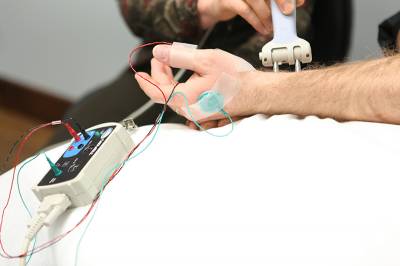What is an electromyogram (EMG) Test?
An electromyogram (EMG) is a test that is used to record the electrical activity of muscles. When muscles are active, they produce an electrical current. This current is usually proportional to the level of the muscle activity. An EMG is also referred to as a myogram.
EMGs can be used to detect abnormal electrical activity of muscle that can occur in many diseases and conditions, including muscular dystrophy, inflammation of muscles, pinched nerves, peripheral nerve damage (damage to nerves in the arms and legs), amyotrophic lateral sclerosis (ALS), myasthenia gravis, disc herniation, and others.

